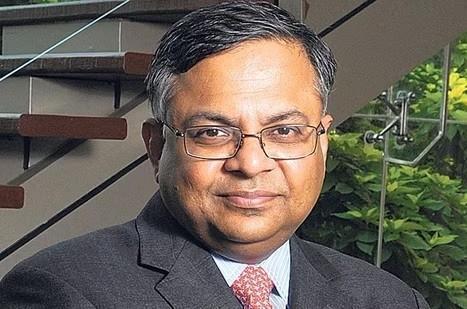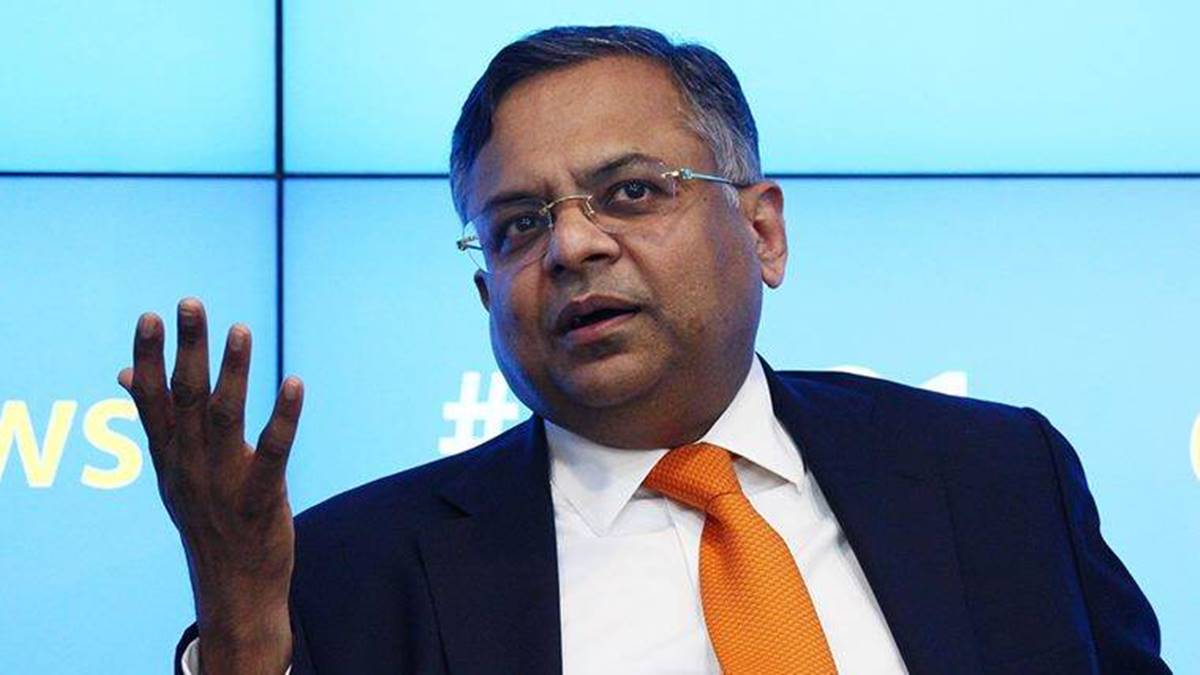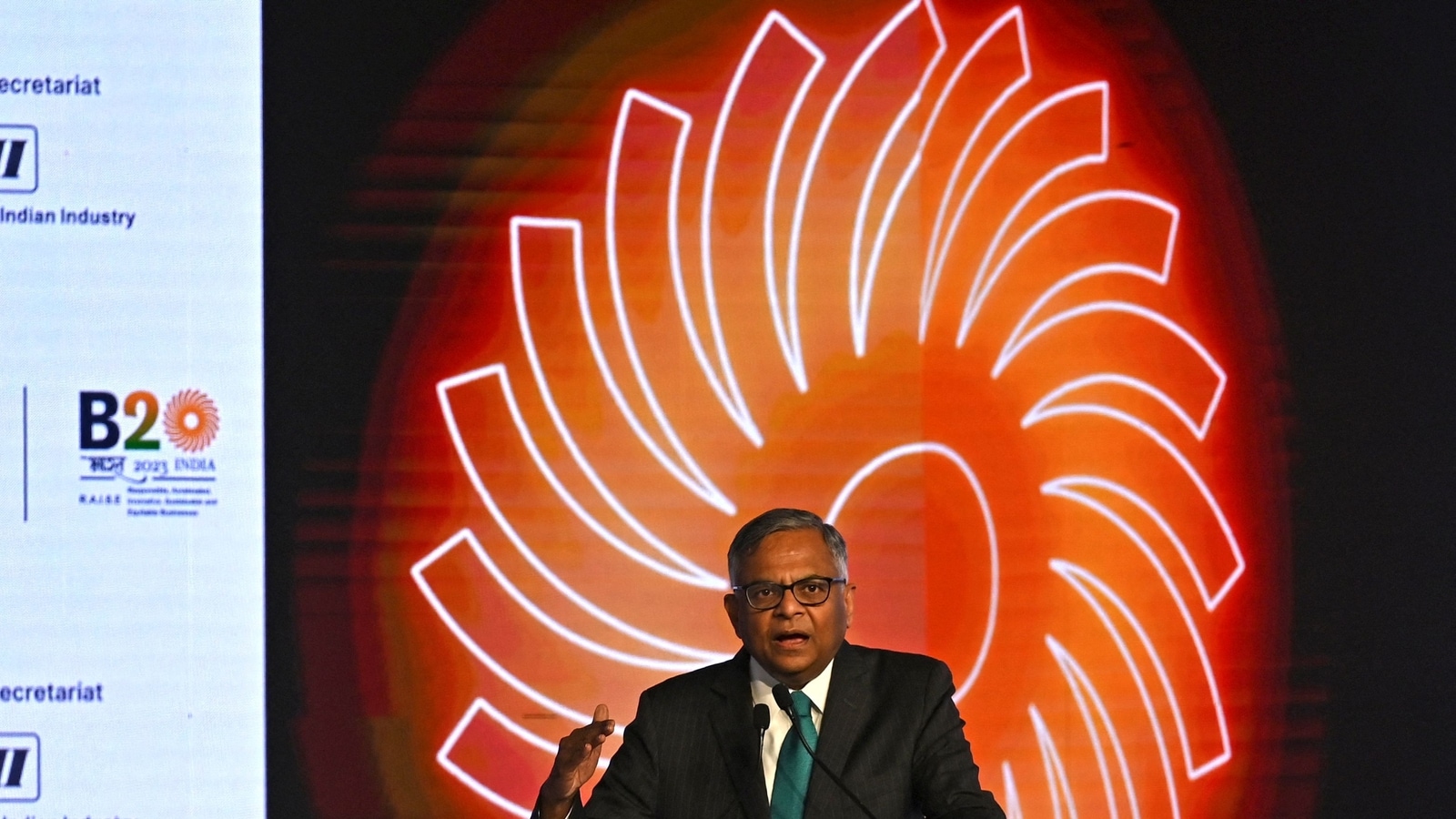AI Revolutionizing Job Market in India: Tata Sons’ Chandrasekaran Envisions Massive Transformation

AI Revolutionizing Job Market in India: Tata Sons’ Chandrasekaran Envisions Massive Transformation
In a groundbreaking revelation that has sent ripples of excitement across the nation, Natarajan Chandrasekaran, Chairman of Tata Sons, recently unveiled his visionary perspective on the impending role of Artificial Intelligence (AI) in reshaping the job landscape of India. His words come at a time when technological advancements are reaching new pinnacles, and the world is witnessing a digital revolution that promises to redefine the very essence of work as we know it.
Speaking at a distinguished tech summit held in Mumbai, Chandrasekaran discussed the potential of AI to revolutionize various sectors of the Indian economy. He brought to light how this trailblazing technology has already started to leave an indelible mark on industries, transcending routine tasks and paving the way for more strategic, value-added roles. He emphasized that, while AI might bring about shifts in traditional job roles, it simultaneously opens doors to a plethora of new opportunities, making the workforce future-ready.
The power of AI lies in its ability to rapidly analyze colossal volumes of data, identify patterns, and make intelligent decisions in a fraction of the time it would take a human. This inherent capability has already been harnessed across diverse sectors in India. In the financial realm, for instance, AI algorithms have streamlined the once-tedious process of credit assessment. Decision-making, which used to take days or even weeks, now happens within mere moments, thanks to AI’s ability to swiftly analyze credit histories, transaction records, and numerous other variables. This not only expedites business operations but also elevates job roles by enabling professionals to engage in more strategic and analytical tasks.

Chandrasekaran’s vision doesn’t merely revolve around the idea of AI as a productivity-enhancing tool. He envisions a much broader transformation – one that could potentially create a synergy between humans and machines. The Chairman stressed that AI, rather than being a threat to human employment, should be embraced as a collaborator that can amplify human potential. This outlook aligns with global research indicating that the adoption of AI tends to generate more jobs than it displaces, provided there’s a concerted effort to upskill the workforce.
The Indian job market, like any other, is not impervious to change. With AI gaining prominence, certain conventional roles may indeed undergo a metamorphosis. Repetitive and rule-based jobs, the low-hanging fruit for automation, might gradually dwindle. However, Chandrasekaran’s assertion of a net positive impact on jobs stems from the vast opportunities AI brings forth. Consider the healthcare sector – a realm of paramount importance, especially in times of a global health crisis. AI has exhibited its potential in diagnostics, drug discovery, and even remote patient monitoring. As routine diagnostic tasks get delegated to AI-driven systems, medical professionals could focus more on patient care, medical research, and complex case analyses.
In the realm of education, AI-powered platforms are revolutionizing the way students learn. Adaptive learning systems personalize the learning journey for each student, identifying their strengths and weaknesses to offer tailor-made lessons. This not only enhances the educational experience but also demands a new cadre of professionals who can develop, manage, and continually refine these AI-driven educational tools.

A remarkable facet of AI is its transcendent nature that infiltrates various industries. Agriculture, the backbone of the Indian economy, stands to gain immensely. AI-imbued drones and sensors can monitor crops with remarkable precision, enabling farmers to optimize irrigation, predict disease outbreaks, and enhance yields. This doesn’t just make farming more efficient; it ushers in a demand for individuals who can operate and maintain these sophisticated agricultural technologies.
Chandrasekaran’s vision is grounded in the understanding that the rapid AI integration necessitates an equally rapid upskilling of the workforce. As India hurtles toward this digital future, reskilling and upskilling programs will play a pivotal role. These programs, which can be facilitated both by the government and private sector, will equip individuals with the skills demanded by emerging AI-driven industries. By proactively reskilling workers in occupations susceptible to automation, a seamless transition can be achieved, and the anticipated job displacement can be mitigated.
The fundamental crux of Chandrasekaran’s vision is the shift from a labor-centric economy to a skill-centric one. A workforce armed with skills that complement AI can seamlessly work alongside it. He emphasized that AI, while proficient in crunching data and drawing insights, is far from replicating the emotional intelligence, creativity, and critical thinking that humans bring to the table. These traits remain quintessential in various roles, from customer service to design to strategic decision-making.
To materialize this vision, concerted efforts are required from various stakeholders. Government bodies can play a pivotal role in creating an ecosystem conducive to AI adoption. This can involve initiatives to support research and development in AI, crafting policies that encourage the integration of AI in industries, and investing in educational institutions that churn out AI-savvy professionals.

Private sector participation is equally crucial. Industry leaders can collaborate with academic institutions to design curricula that align with the demands of AI-driven industries. Furthermore, they can establish apprenticeship programs, internships, and continuous learning initiatives to facilitate hands-on experience and upskilling opportunities.
In conclusion, Natarajan Chandrasekaran’s perspective on AI’s transformative potential in the Indian job market resonates as both visionary and pragmatic. The narrative he weaves isn’t one of job displacement, but of job evolution. While certain roles might evolve or diminish, the rise of AI opens the door to a plethora of opportunities that demand uniquely human skills.
The synergy between AI and humans can propel India into a new era of innovation, productivity, and economic growth. As the nation hurtles into this AI-powered future, embracing the requisite changes and investing in upskilling will be the compass guiding the workforce toward new horizons.




